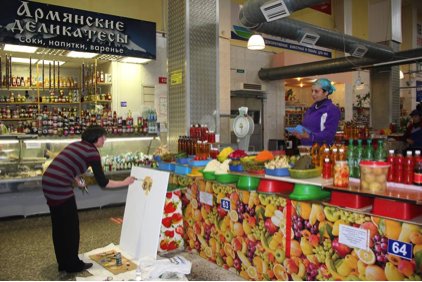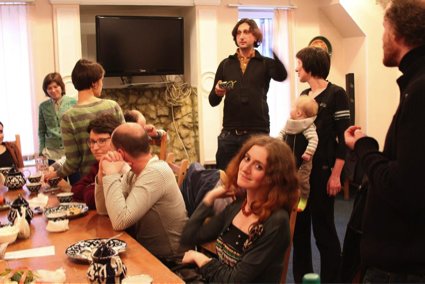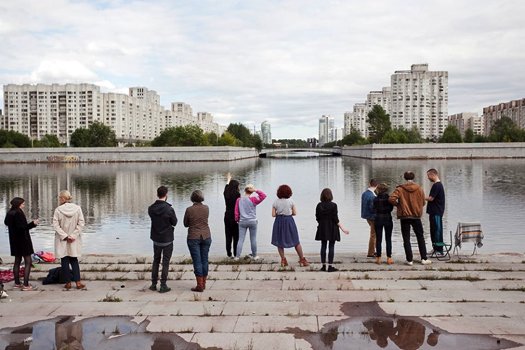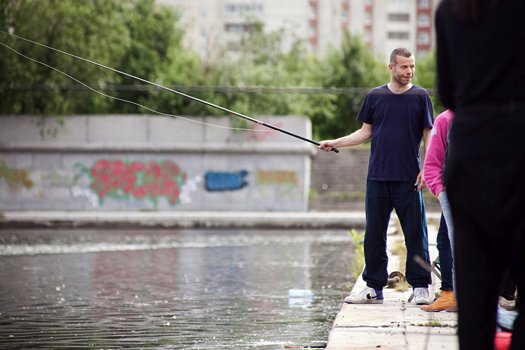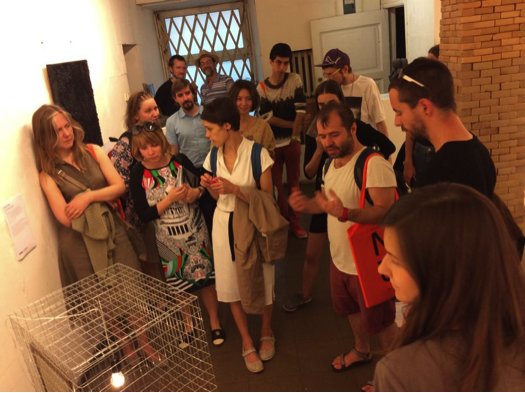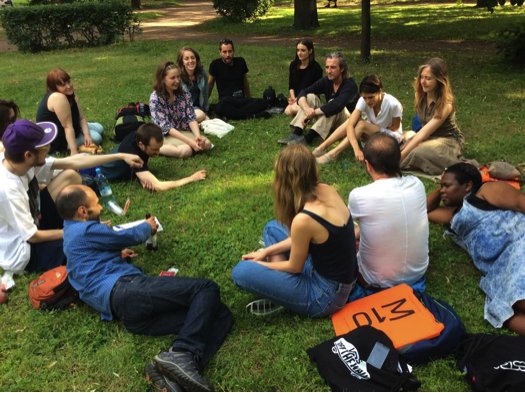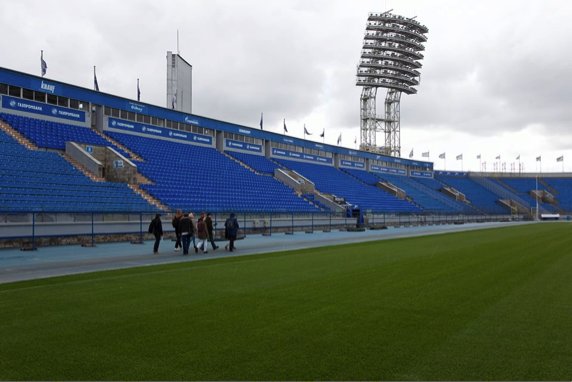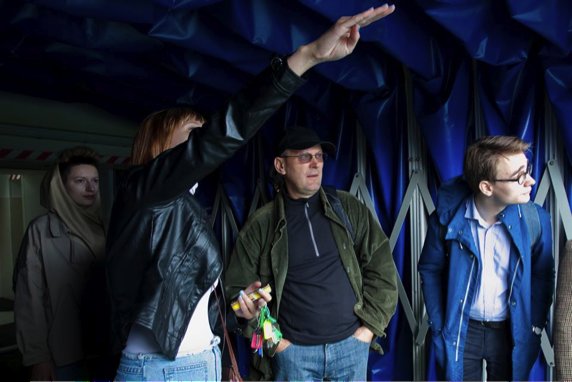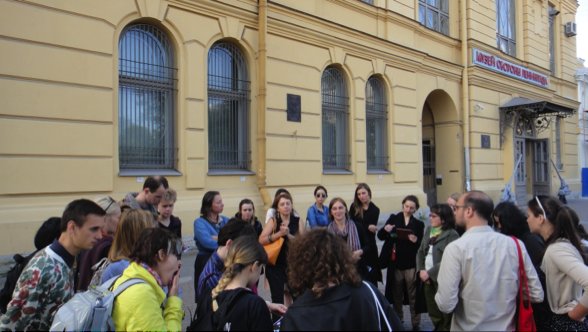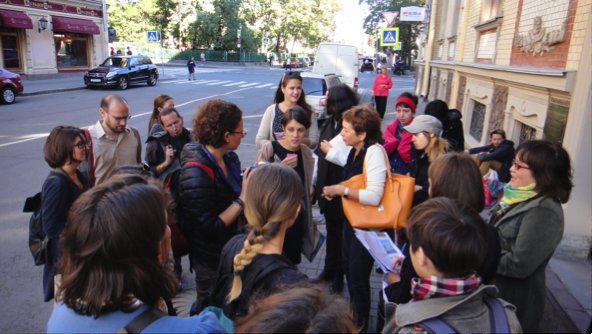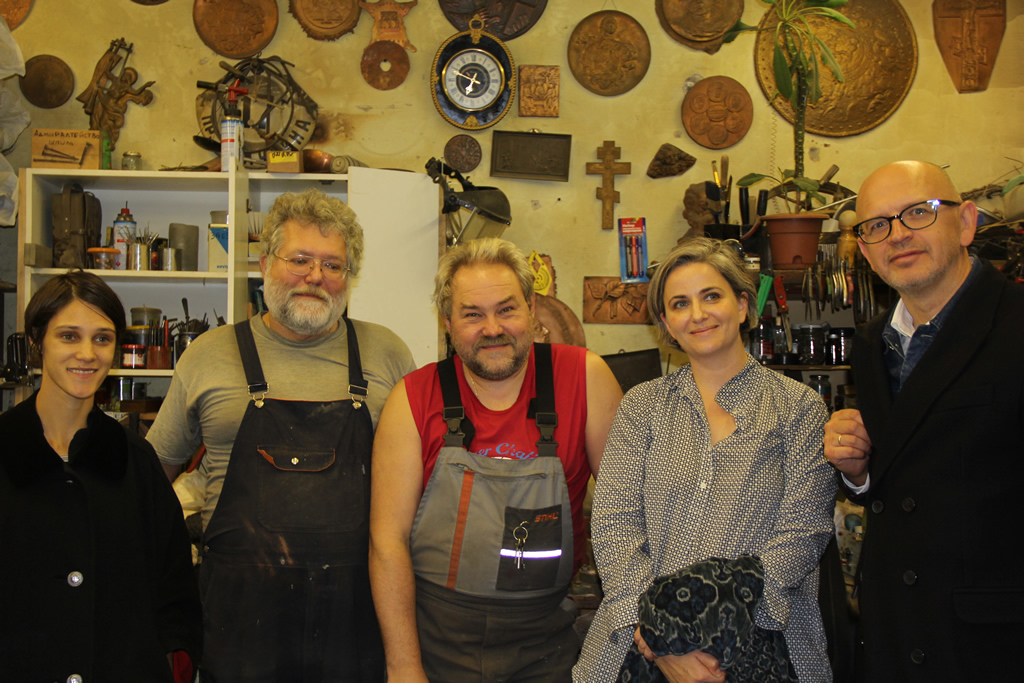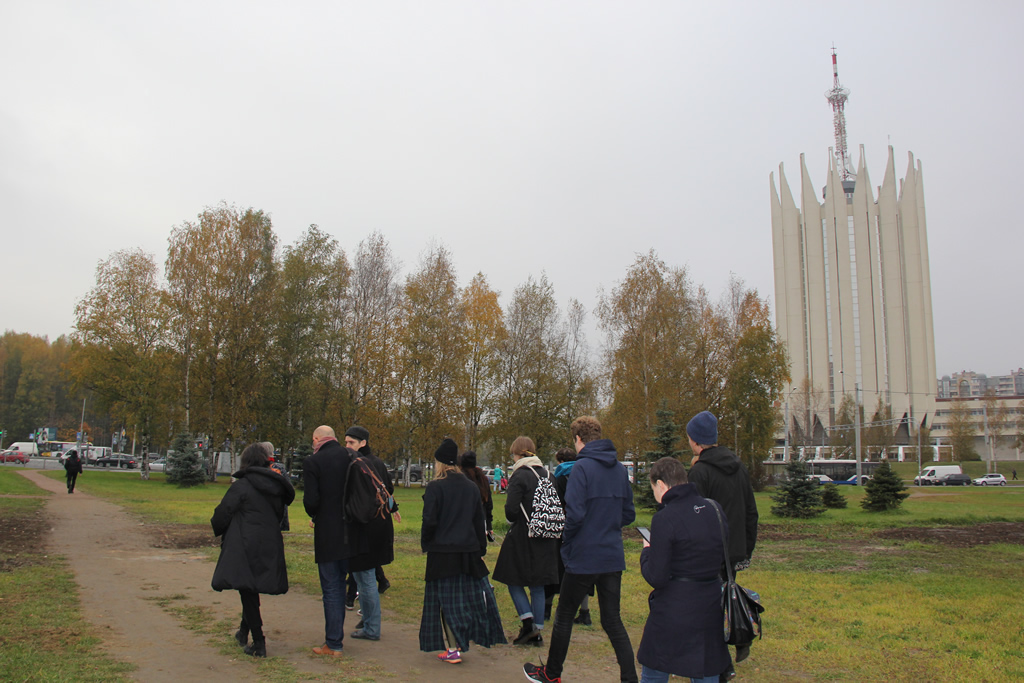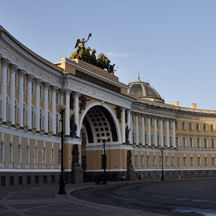
The European Biennial of Contemporary Art
28 June 31 October 2014
St. Petersburg, Russia The State Hermitage Museum
Artists' Walks
Drawing from the strong tradition of the St Petersburg’s derive (unplanned journey), in which groups of enthusiasts and experts have made excursions to obscure locations, or to obvious locations with obscure intentions, Manifesta 10 Education has included in it’s schedule of regular events, a program of Artists’ Walks. The organizers, St Petersburg based artists Olga Jitlina and Emily Newman wish to expand the boundaries of Manifesta 10 outwards from the Hermitage, making use of the expertise and secret knowledge of the city’s artists. Regularly, throughout the duration of the biennale, local artists are paired with those visiting for Manifesta 10, asking the couple to work together to devise a route that speaks to their common interests. We hope that our group, which is open to artists and enthusiasts in general, will operate on the impulse of hospitality; in these complicated times, we encourage strangers to resist global politics with a gesture of friendship both fleeting and sustained.
1. 14th of May, 2014 – Evgenya Golant and Lado Darakhelevidze, Torzhkovski Market
Zhenya Golant and Lado Darakhelevidze opened Manifesta 10 “Artists Walks” program with a joint sketching and painting session in St Petersburg's Torzhkovski Market. They were joined by local and visiting artists, photographers, art-historians and curators. Our event also attracted film-directors and human rights activists. Some were inspired to draw or take pictures, while others socialized with the employees of the market, and some managed to shop. After the studio-session, we went together to the tearoom Hodja Nasredin, located above the market, to exchange impressions and to become better acquainted.
2. 26th June, 2014 – Wolfgang Tillmans and Fotodepartment, Smolenka River embankment
On the 26th of June, a group of young photographers associated with FotoDepartment took Wolfgang Tillmans fishing on the river Smolenka (in Saint-Petersburg suburbs).
Why fishing? It seems that fishing has some common features with the process of taking pictures. Just like a fisherman, a photographer is supposed to be patient and attentive to things. At the same time, in the fisherman's case the process of waiting, contemplating, thinking, not thinking, simply being there and allowing the time pass makes him/her forget about his/her initial intentions. Or so it seems. The question is, whether a photographer should/could get rid of his/her pre-determined ideas, conceptions, and intentions and allow the reality to reveal itself. Or should (s)he at least set a scene for this revelation, so that something that was invisible would get a chance to become visible and get on the surface.
We all met by the metro station Primorskaya and headed together to the fishing spot. We had enough fishing rods and flies for everyone, and even invited professional fishermen. Plaids and folding chairs were provided as well. Conversations and tea drinking accompanied the fishing session, which lasted for three hours.
3. 18th July, 2014 – Pavel Braila and the PARAZIT group, Borey Gallery
In his practice Moldovan artist Pavel Braila is engaged in, among other subject matter, the theme of food and migration. On the occasion of his exhibition in Berlin, the artist’s mother had to cook large portion of national dishes and send it via Eurolines bus across the border to the opening.
PARAZIT artists invited Pavel to meet at the cafe of the Borey gallery, which chef, Tatiana, fed more than one generation of Leningrad and St. Petersburg artists.
After the meeting and a walk through the exhibition, the artists went for a walk along the Fontanka and sat in a park to discuss the history of the PARAZIT group with one of its founders, Igor Panin.
4. 30th August, 2014 – Josef Dabernig and Pavel Stepanov, Petrovsky Stadium
The Viennese artist Josef Dabernig, sculptor by education, has been active in the genre of experimental film since the 1990s. His short film, "Wisla" was filmed in an empty football pitch in Kraków in 1996, and till today, Dabernig has not lost interest in the structures, which surround sport. Art-historian Pavel Stepanov who's dissertation-in-progress takes the topic "Artistic space in film in the Leningrad School." Was invited to join Dabernig for a walk at the Petrovski stadium, used as a context for an open conversation on art, film and possibly football.
5. 6th September, 2014 – Aaron Schuster, Alla Mitrofanova and Irina Yukina, Museum of the Siege of Leningrad’s Defense
Aaron Schuster, writer and philosopher who explores levitation, and tickling as a philosophical concept, gave a lecture about the sexual revolution of the Soviet 1920s at the Sigmund Freud Museum of Dreams for Manifesta 10 Public Program. Before that, we invited Aaron for a walk with the media philosopher and curator of the cyber Feminist club operating in GES-21 since 1994 -- Alla Mitrofanova, and Irina Yukina, the author of the book "Russian feminism as a challenge to the present." Together we walked to places associated with the events of the Saint Petersburg and Russian feminist movement and the sexual revolution in the late 19th and early 20th century.
6. 9th October, 2014 – Deimantas Narkevicius and Emily Newman, Polytechnicheskaya Metro station and Skulptor factory
Emily Newman and Deimantas Narkevicius took a walk in the Northern Suburbs around the Polytechnicheskaya Metro station.
Both artists work in film but were trained in sculpture, taking Soviet sculpture as a specific departure point for studying the visual culture of communism. A number of Narkevicius' films directly work with images of Soviet monumental sculptures and people's relation to them. Newman studied Soviet monumental and graveyard sculpture and recently made plans to make a contemporary memorial to the Chelyuskinites in Udelny Park. Looking at local points of interest including the White Tulip tower and the Dacha Benois, we made our way from the metro to the Skulptor factory on Ulitsa Toreza. Skulptor, founded in 1974, is the factory where many of the city's public monuments were produced through the Soviet period and into the present. We had an excursion of the factory with some of its staff and heard about the history of the factory and it's current state.

